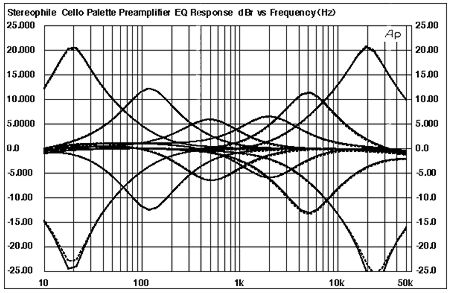That is not entirely true. If you just look at the magnitude response as you adjust the PEQ, you cannot see the effects on decay due to reflections but you are varying them as well. Every filter configuration has a fairly unique time signature which can be used or misused. The solution is to have measurement and frequency synthesis tools that predict and assess decay as well as magnitude with respect to frequency.2. Parametric digital EQs are more productive (1/3 octave + separate 'Q'),
but they don't correct for delays (reverbs, or reflections).
A nice example of such an application is Meridian Room Correction. It makes no effort to correct FR but, rather, attempts to standardize decay times up to 300Hz. It does this by inserting filters that compensate for unusually extended decays that occur at certain frequencies and, as a byproduct, it has an ameliorative effect on FR.


